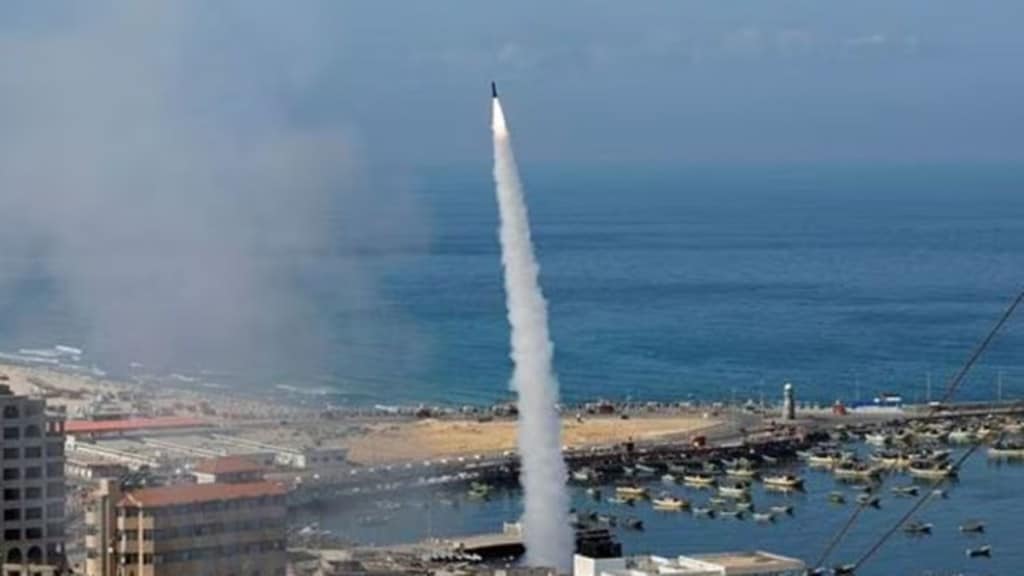In recent times, Israel’s issuance of a warning to approximately 1.1 million residents in northern Gaza, urging them to vacate their homes within a 24-hour window, has provoked a global outcry. Palestinian President Mahmud Abbas has expressed concerns that Palestinians might be on the precipice of a “second Nakba,” or catastrophe.
Defining Nakba
The term “Nakba,” which translates to “catastrophe” in Arabic, holds deep historical significance. It refers to the mass displacement of Palestinians during the 1948 Arab-Israeli war, during which an estimated 760,000 Palestinians either fled or were forcibly expelled from their homes. This displacement constituted a staggering 80% of the Palestinian Arab population in the territory that would later become Israel.
Before the Nakba, Palestine was characterized as a multi-ethnic and multi-cultural society. However, the conflict between Arab and Jewish communities had been escalating since the 1930s. The rise in Jewish immigration, driven by persecution in Europe, and the Zionist movement’s aspiration to establish a Jewish state in Palestine exacerbated tensions.
The Nakba, in essence, was the shattering of Palestinian society and homeland in 1948, resulting in the permanent displacement of countless Palestinians. To those in Gaza, the ongoing Israeli bombardment evokes memories of this catastrophic event.
The Ravages of Nakba
Historical accounts indicate that Israel destroyed 531 Palestinian towns and villages during the Nakba. Tragically, the conflict claimed the lives of approximately 15,000 unarmed Palestinians.
Origins of the Nakba
In November 1947, the UN General Assembly passed a resolution that recommended the partitioning of Palestine into two separate states: one Jewish and the other Arab. The Arab world rejected this plan, asserting that it was inequitable and violated the principles of the UN Charter.
Following the UN decision, Jewish militias launched attacks against Palestinian villages, compelling nearly 800,000 people to abandon their homes. These confrontations escalated into a full-scale war in 1948, coinciding with the termination of British Mandate rule, the proclamation of Israel’s statehood, and the entry of neighbouring Arab armies.
The newly established Israeli forces launched a major offensive, leading to the permanent displacement of over half of the Palestinian population.
Elusive Justice and Compensation
In December 1948, the UN General Assembly passed resolutions calling for the return of refugees, restitution of their properties, and compensation for their losses. Nevertheless, even after 75 years, despite numerous UN resolutions, the rights of the Palestinian people continue to be denied.
The UN Relief and Works Agency for Palestine Refugees reports that more than 5 million Palestinian refugees are scattered across the Middle East. Today, Palestinians still face dispossession, displacement caused by Israeli settlements, evictions, land confiscation, and home demolitions.
Nakba’s Enduring Impact
The Nakba had a profound and enduring impact on the Palestinian people. They lost not only their homes and lands but also their way of life. It remains a deeply traumatic event etched into their collective memory, shaping their ongoing struggle for justice and their unwavering determination to return to their homes.
In 1998, Yasser Arafat, the leader of the Palestine Liberation Organization, proposed the observance of “Nakba Day” on May 15th, the day following Israel’s declaration of independence in 1948. This formalized a date that had been informally recognized since 1949.
In 2022, the UN General Assembly recognized the significance of Nakba’s anniversary, designating May 15, 2023, as the first official commemoration of Nakba Day in the history of the United Nations.
Israel’s Perspective on Nakba
Israeli officials have consistently rejected the term “Nakba,” labelling it as an ‘Arab lie’ or a ‘justification for terrorism.’ In 2009, the Israeli Ministry of Education even banned the use of ‘Nakba’ in Palestinian textbooks for children. In 2011, the Knesset (Israeli parliament) forbade institutions from commemorating the event, inadvertently increasing awareness of Nakba within Israeli society.
With the UN’s decision to institute Nakba Day on May 15, 2023, the Israeli ambassador, Gilad Erdan, protested, describing the event as anti-Semitic. In the narrative of many Jewish Israelis, the period of Nakba is considered the birth of the State of Israel and their “War of Independence.”


